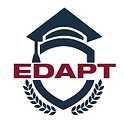Exploring Student Debt Relief: Understanding the Biden Administration's $127 Billion Forgiveness Initiative and Your Options Ahead.
President Joe Biden's efforts to eliminate up to $400 billion in student debt for millions of Americans faced setbacks at the Supreme Court.
But he has successfully cleared $127 billion in student debt for over 3.5 million borrowers, a historic achievement.
His administration utilized existing programs that were once challenging for many borrowers to access, providing much-needed relief.

Here’s what borrowers should know about those options for aid.
Income-Driven Repayment Plans
Income-driven repayment plans, which date back to 1994, allow student loan borrowers to pay a share of their earnings toward their debt each month, and to get any remaining debt forgiven after a set period. There are four different plans.
Public Service Loan Forgiveness
The initiative, established under the legislation enacted by President George W. Bush in 2007, enables specific non-profit and government employees to qualify for federal student loan forgiveness after a decade of consistent payments. A study conducted by the Consumer Financial Protection Bureau in 2013 suggested that around 25% of U.S. workers could potentially benefit from this program.
Total and Permanent Disability Discharge
A TPD discharge is an option for borrowers who meet specific criteria due to a severe and permanent mental or physical disability that hinders their ability to work. Documentation of the disability may be provided by a medical professional, the Social Security Administration, or the Department of Veterans Affairs.
Borrower Defense
Eligibility for the discharge is possible if borrowers experienced sudden school closures or were victims of college fraud. The Biden administration has expedited the processing of these applications, now reviewing cases collectively instead of requiring individual proof of deception for each school attendee.
Care About Us
Will student loan payments resume next month?
Yes, payments on student loans will resume next month. Borrowers used to the relief given by the payment pause should be prepared to resume their normal monthly payments.



The Importance of Considering Extra Payments
While income-driven repayment plans and forgiveness programs help many debtors, it’s important to recognize that making extra payments might be financially beneficial. This is emphasized by Bruce McClary, Senior Vice President of Media Relations and Membership at the National Foundation for Credit Counseling.
“It just makes sense: if you have extra money, pay down your debt,” McClary explained. “Don’t just pay the minimum; this applies to any type of debt, particularly credit card debt right now.”

Temporary Protections for Borrowers
It's essential to be aware that some temporary protections are in place for borrowers as they transition back into making payments. Missing or having a late or partial payment won't be reported to credit reporting agencies through next September because of an "on-ramp" transition. However, it's important to note that interest will still accrue during that time.

Seeking Guidance and Assistance
Navigating the complex landscape of student loan repayment can be challenging. If you need advice about student loan repayments, LSS Financial Counseling offers free consultations. Their services are available virtually nationwide, and in-person appointments can be made in Minnesota. It's essential to explore your options and make informed decisions about managing your student loan debt.

McClary explained
McClary is concerned that the payback time may exacerbate some Americans' already precarious financial circumstances, citing the nation's record credit card debt. As a result, if you have the ability to contribute more to your student loans than your servicer needs, you should consider doing so.
Latest ekit news
Ekit Latest News
Tagged Student Loan Payments

